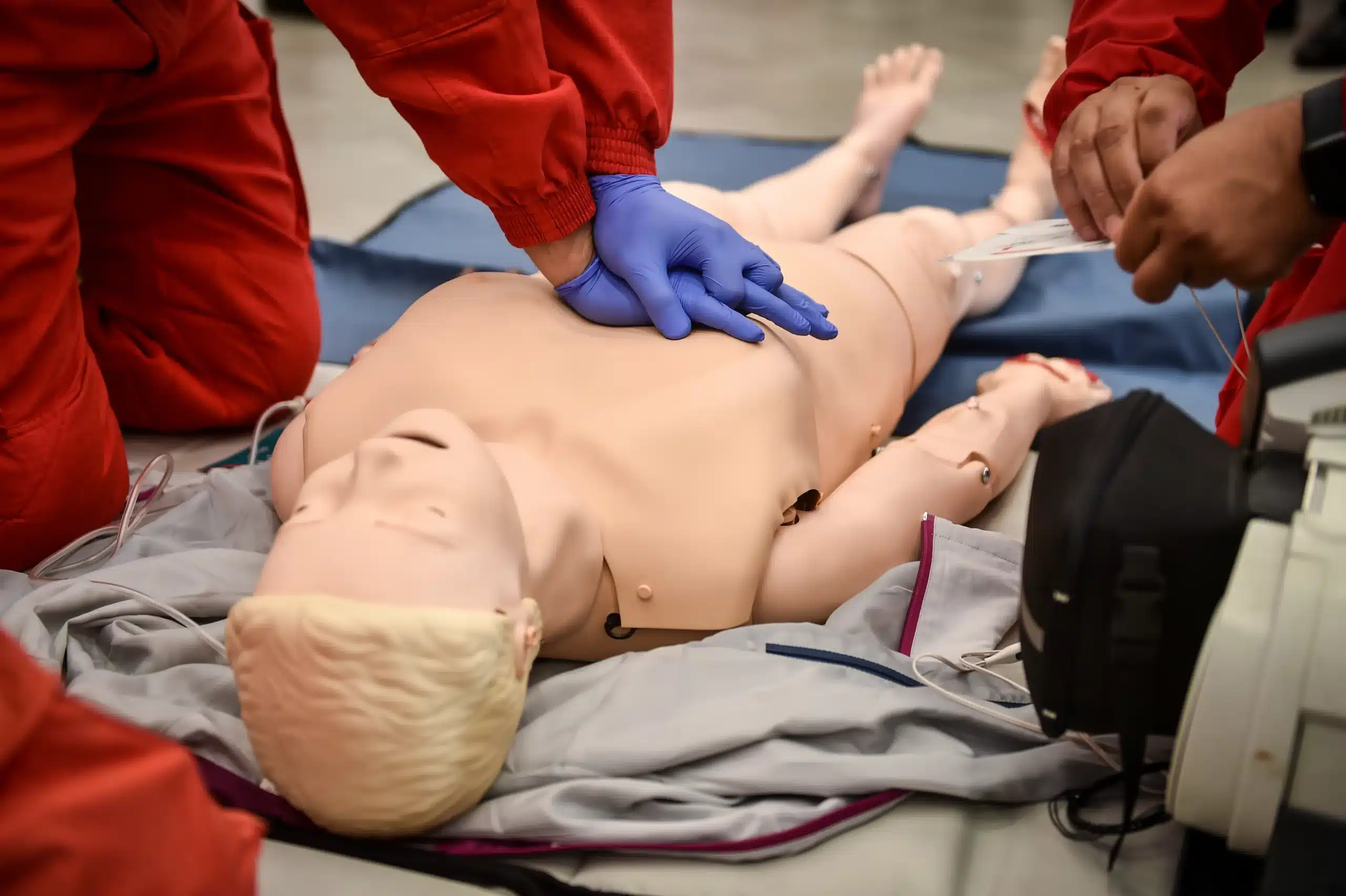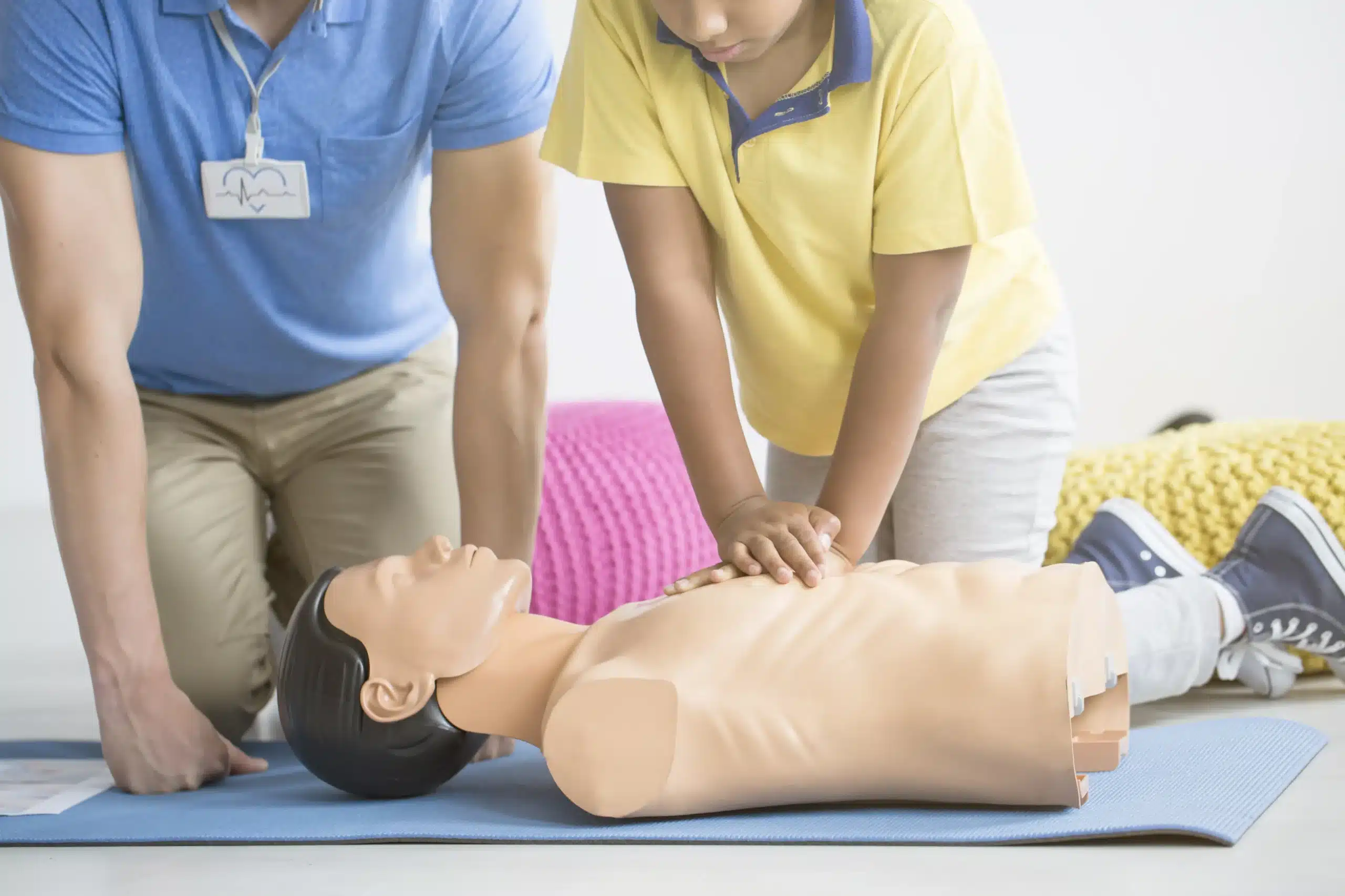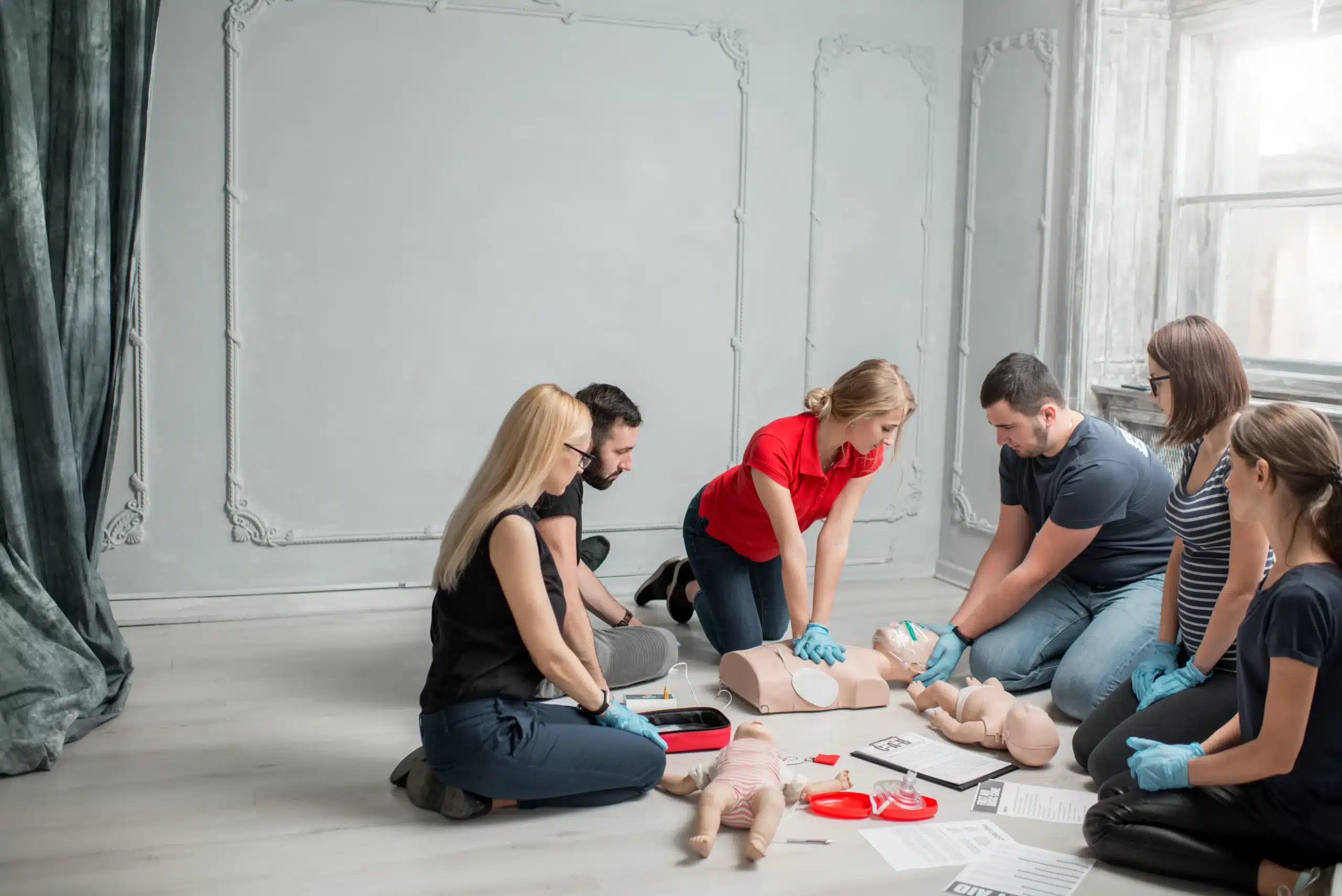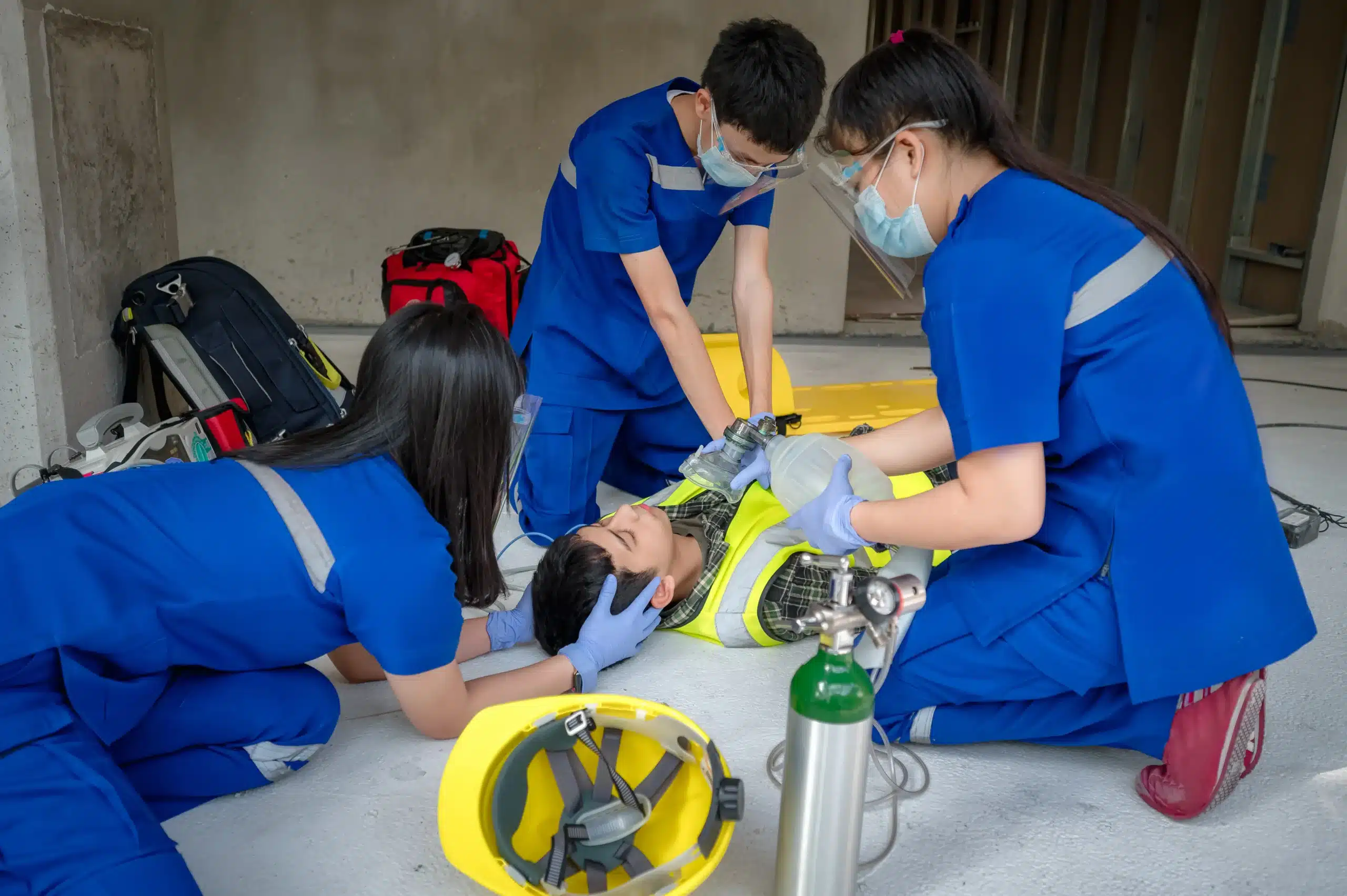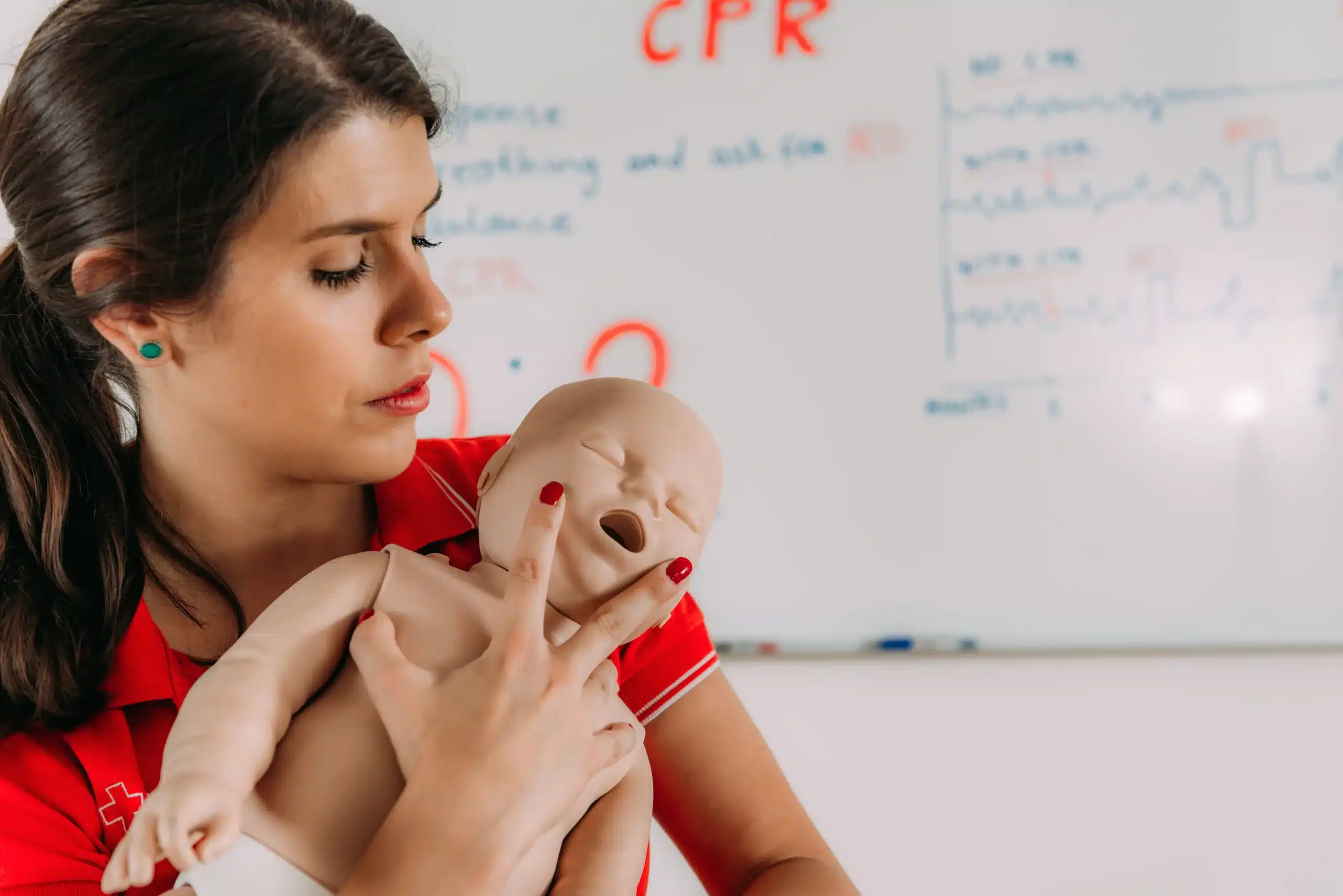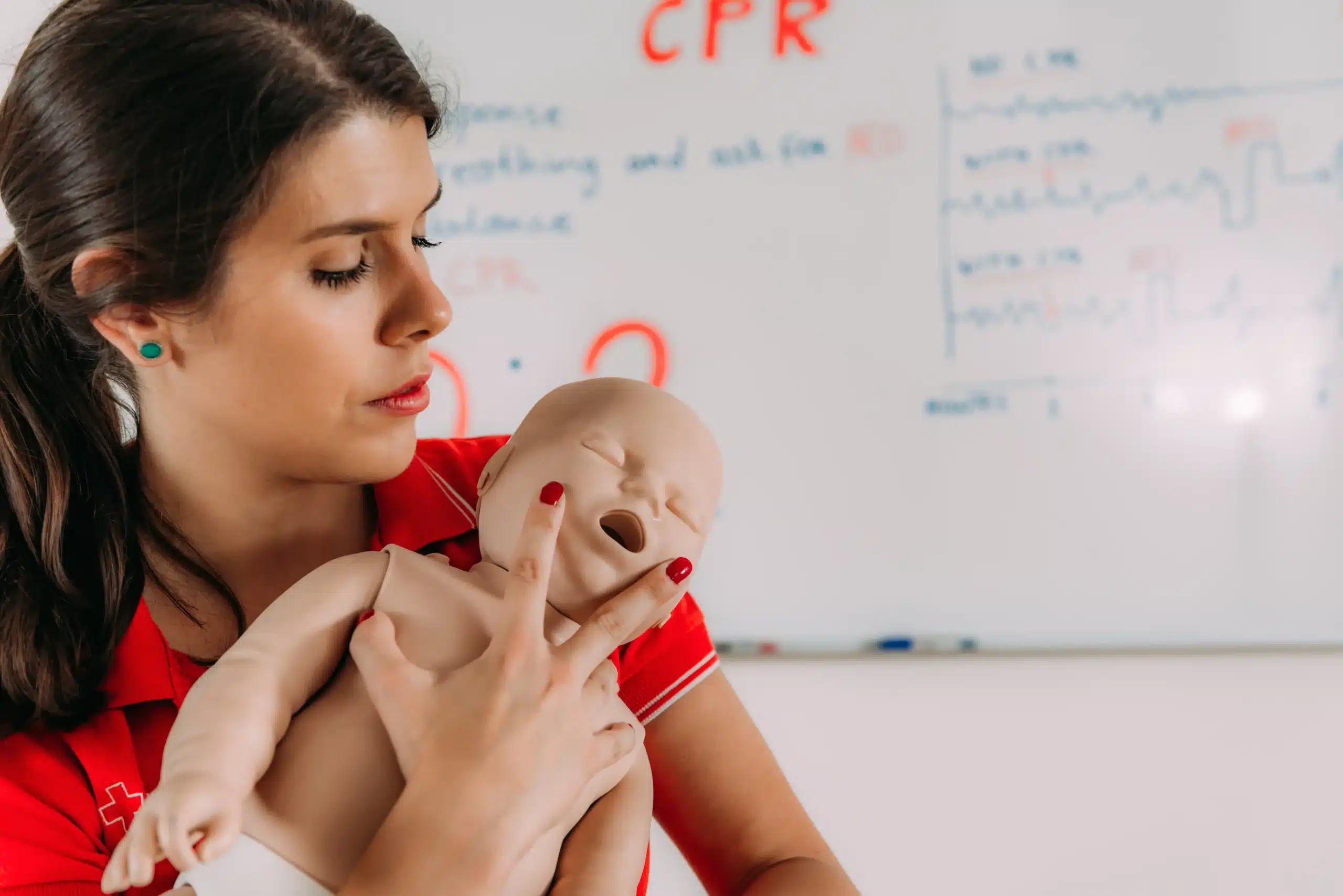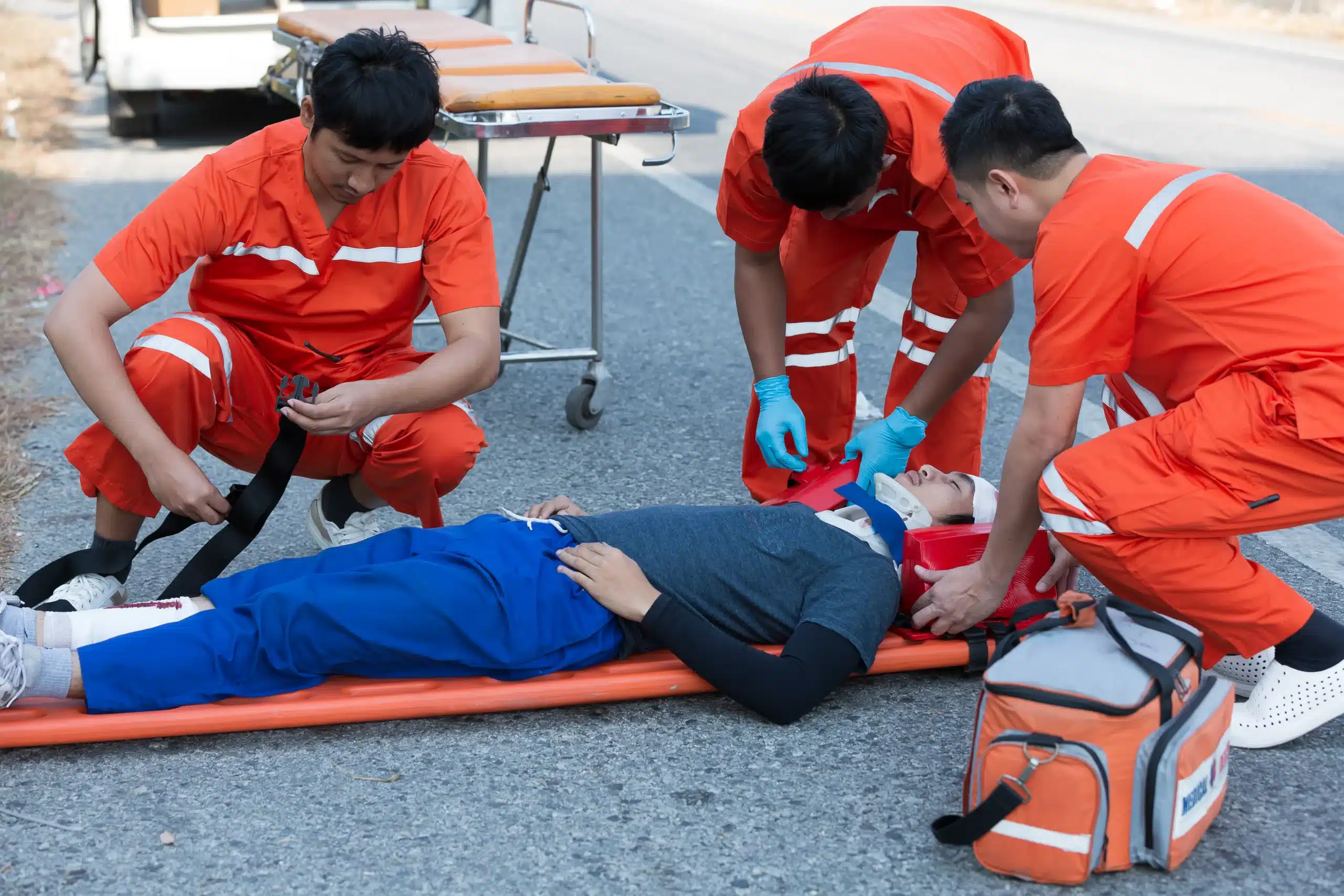Working with children in a healthcare setting is incredibly rewarding, but it also comes with a unique set of responsibilities. As healthcare professionals, we know that children don’t react to medical emergencies the same way adults do. That’s why specialized training like Pediatric Advanced Life Support (PALS) is so vital. If you’re a healthcare provider in Rancho Cordova, Fair Oaks, or Carmichael seeking PALS certification or recertification, this guide will break down everything you need to know about pediatric advanced life support in Rancho Cordova, from course content and available training options to what to expect during the course and how to prepare. We’ll cover key skills like high-quality CPR for infants and children, managing shock, and responding to pediatric cardiac arrest. Let’s equip ourselves with the skills to confidently and effectively care for our youngest patients.
Key Takeaways
- PALS certification equips you with life-saving pediatric emergency skills: Whether you’re a doctor, nurse, or paramedic, PALS training provides the knowledge and hands-on practice necessary to respond effectively to critical situations involving infants and children.
- Effective PALS training blends theory and practical application: Look for courses that combine interactive learning with realistic simulations and hands-on skill practice. This approach builds both your understanding and your confidence in managing pediatric emergencies.
- Preparation and time management are crucial for PALS training success: Review pre-course materials, ensure your BLS certification is up-to-date, and choose a course format that aligns with your learning style. Planning ahead and managing your time effectively will contribute to a positive and productive learning experience.
What is Pediatric Advanced Life Support (PALS)?
PALS Definition and Purpose
Pediatric Advanced Life Support (PALS) training equips healthcare providers with the skills to effectively manage pediatric emergencies. The course focuses on a systematic approach to quickly assess, identify, and treat critically ill infants and children. This specialized training goes beyond basic life support, covering the complexities of pediatric physiology and the unique challenges of providing emergency care to young patients. The ultimate goal of PALS is to improve the quality of care and outcomes for children facing life-threatening medical situations. Carmichael CPR Classes offers American Heart Association CPR and First-Aid courses including PALS.
Why PALS Matters for Healthcare Professionals Working with Children
PALS certification is crucial for healthcare professionals who regularly work with children. This includes doctors, nurses, paramedics, respiratory therapists, and emergency medical technicians. Anyone working in a pediatric intensive care unit, emergency room, or similar setting benefits from this advanced training. A deep understanding of pediatric-specific resuscitation techniques, medication dosages, and airway management strategies can significantly impact a child’s chances of survival and recovery. Regular PALS renewal ensures these critical skills remain sharp and reflect the latest advancements in pediatric emergency care. It’s not just about maintaining certification; it’s about providing the best possible care for young patients in times of crisis. Our low price guarantee makes it easy to get the training you need. For those working in childcare, training in EMSA Child Care Health & Safety may also be helpful.
PALS Training Options in Rancho Cordova
Initial Certification
PALS (Pediatric Advanced Life Support) training is crucial for healthcare providers working with infants and children. It equips you with the skills to respond effectively in pediatric emergencies. If you’re entering this field or aiming to enhance your qualifications, obtaining your initial PALS certification is a significant step. Carmichael CPR Classes, serving Rancho Cordova and the surrounding areas, offers various CPR and first-aid certification courses, including PALS. This comprehensive course covers everything from basic life support to advanced pediatric life-saving techniques.
Renewing Your Certification
Maintaining up-to-date knowledge and skills is essential in healthcare. If your PALS certification is nearing its expiration, you’ll need to renew it. Renewal courses are offered regularly in the Rancho Cordova area, ensuring convenient access to maintain your credentials. Carmichael CPR Classes offers a low price guarantee, making it an affordable option for recertification. Staying current with your PALS certification demonstrates your commitment to providing the highest quality care.
Course Content and Duration
PALS courses cover a wide range of topics essential for pediatric emergency care. You’ll learn to assess, recognize, and manage various pediatric emergencies, from respiratory distress to cardiac events. The course content is designed to meet the specific needs of healthcare professionals working in diverse settings, including emergency rooms, intensive care units, and emergency response teams. The duration of PALS courses can vary, but they are structured to provide a thorough understanding of pediatric life support principles and practices. The American Heart Association BLS course is often a prerequisite for PALS certification.
Blended Learning Options
For those seeking a flexible approach to PALS training, blended learning options combine online learning with in-person skills sessions. The online component allows you to study the theoretical aspects of PALS at your own pace, offering flexibility for busy professionals. The hands-on sessions provide opportunities to practice essential skills and techniques under the guidance of experienced instructors. This blended learning format offers a convenient and efficient way to earn or renew your PALS certification. Check with Carmichael CPR Classes to see if they offer this flexible learning option. They also offer EMSA Child Care Health and Safety training.
What Happens in a PALS Course?
A PALS course blends interactive learning with real-world application to prepare healthcare providers for pediatric emergencies. Here’s a glimpse into what you can expect:
Hands-on Skills Practice
PALS courses aren’t just lectures. They emphasize hands-on training to build crucial skills. You’ll practice essential techniques like high-quality CPR for infants and children, vascular access, and medication administration. This practical experience helps you develop muscle memory and confidence for real-life emergencies. The course is designed for healthcare providers who respond to emergencies in infants and children. This includes personnel in emergency response, emergency medicine, intensive care, and critical care units such as physicians, nurses, paramedics, and others who need a PALS course completion card for their job or other requirements.
Emergency Scenario Simulations
PALS training uses realistic simulations, often called “Megacodes,” to immerse you in challenging pediatric emergency scenarios. These dynamic scenarios test your ability to apply your knowledge and skills under pressure, working as part of a team. You’ll learn to assess situations quickly, make critical decisions, and communicate effectively with your team. These Megacodes help evaluate your skills application, facilitate team-based learning, and pinpoint areas for improvement—all focused on advancing competency in managing pediatric lifesaving events.
Exams: Written and Practical
PALS courses include both written and practical exams to assess your understanding and proficiency. The written exam tests your knowledge of key PALS concepts and protocols. The practical exam evaluates your ability to perform essential skills correctly and efficiently. Successfully completing these exams demonstrates your readiness to respond effectively to pediatric emergencies. To maintain your PALS certification, you must complete a renewal course, pass the necessary assessments, and stay updated on the latest pediatric emergency protocols.
Key Skills and Knowledge in PALS Training
PALS training equips healthcare providers with essential skills to manage pediatric emergencies. From foundational CPR techniques to advanced life support interventions, PALS covers a wide range of knowledge and practical skills. Let’s explore some key areas covered in a typical PALS course:
High-Quality CPR for Children and Infants
High-quality CPR is the cornerstone of PALS. PALS courses reinforce effective chest compressions and proper ventilation techniques for children and infants. This includes understanding the appropriate depth and rate of compressions for different age groups and recognizing the signs of inadequate circulation. These skills are crucial for maintaining oxygenation and circulation until other interventions can begin. Learn more about the importance of high-quality CPR and its role in PALS.
Recognizing and Managing Shock
Early recognition and management of shock are critical for improving outcomes in pediatric patients. PALS training emphasizes identifying the often subtle signs of shock in children. The training covers various types of shock, including hypovolemic, distributive, and cardiogenic shock, and provides practical guidance on interventions. This includes fluid resuscitation, medication administration, and ongoing monitoring. Dignity Health offers more information on managing shock in pediatric emergencies.
Managing Respiratory Emergencies
Respiratory emergencies are common in children. PALS training prepares healthcare providers to manage these critical situations. The training covers a wide range of respiratory conditions, from croup and bronchiolitis to severe respiratory distress and failure. Participants learn to assess respiratory function, administer oxygen, and use airway management techniques, including bag-mask ventilation and intubation. Cochrane Emergency Training provides a detailed PALS description including the respiratory emergencies covered in the course.
Responding to Pediatric Cardiac Arrest
Pediatric cardiac arrest requires a rapid and coordinated response. PALS training provides the knowledge and skills to effectively manage these high-pressure situations. The training emphasizes early defibrillation, effective CPR, and medication administration. Participants learn to work as a team, follow established algorithms, and adapt their approach based on the specific circumstances. ACLS Now offers insights into PALS training for responding to pediatric cardiac emergencies.
Using AEDs in Pediatric Emergencies
Automated External Defibrillators (AEDs) are essential tools for managing pediatric cardiac arrest. PALS training covers the safe and effective use of AEDs in children, including energy settings and pad placement. Participants gain hands-on experience using AEDs in simulated scenarios, building confidence in this critical skill. This resource highlights the importance of AED use within PALS training.
The Expertise Behind PALS Training
Choosing the right PALS course is crucial for both your career and your confidence in responding to pediatric emergencies. Two key factors to consider are the instructors’ qualifications and the program’s adherence to American Heart Association (AHA) standards.
Instructor Qualifications and Experience
PALS training is designed for healthcare providers who regularly face pediatric emergencies—personnel in emergency response, emergency medicine, intensive care, and critical care units. Think physicians, nurses, paramedics—professionals who need a PALS course completion card to meet job requirements. Given these critical roles, it’s essential that your instructors have extensive real-world experience. Look for programs where instructors are not only certified but also deeply experienced in pediatric emergency care. This background ensures they can provide relevant, practical insights.
American Heart Association Certification
The American Heart Association (AHA) sets the gold standard for PALS training. AHA-certified PALS courses adhere to a rigorous, evidence-based curriculum covering the latest best practices in pediatric emergency medicine. This certification matters because it signifies that the training aligns with nationally recognized guidelines. Carmichael CPR Classes is a woman-owned AHA Training Center providing a range of certification courses, including PALS. This commitment to quality ensures you’re learning the most up-to-date and effective techniques.
Preparing for PALS Training
Getting ready for your Pediatric Advanced Life Support (PALS) training? A little preparation goes a long way. Here’s what you should know:
Current BLS Certification Required
You’ll need a current Basic Life Support (BLS) certification before starting PALS training. This foundational course equips you with essential life-saving techniques for any medical emergency, particularly those involving children. Ensure your BLS certification is current before enrolling in a PALS course. ACLS Now offers more information on PALS requirements.
Medical Background Expectations
PALS training builds on existing medical knowledge. While specific prerequisites vary, participants typically have a background in healthcare. Nurses, paramedics, and physicians who work with children are common participants. A solid understanding of pediatric anatomy, physiology, and medical emergencies will help you maximize your learning. Sacramento CPR Classes provides further information on PALS certification.
Pre-Course Self-Assessment and Study Materials
Take advantage of pre-course resources once you’ve enrolled. Reviewing the PALS Provider Manual and completing the pre-course self-assessment can significantly improve your learning experience. These materials introduce key concepts and help you pinpoint areas for focused study. This preparation allows for more active participation and better absorption of information during training. Learn more about preparing for your PALS class with ACLS Now.
PALS Training: Costs and Registration
Course Costs
Pediatric Advanced Life Support (PALS) training is a crucial investment for healthcare providers working with children. The cost for a PALS course is typically around $250.00 for initial certification. Renewal courses are generally more affordable, often around $125.00. This allows professionals to maintain their PALS certification without a significant financial burden. Check with your chosen provider, like Carmichael CPR Classes, for their specific pricing.
Discounts and Promotions
Many training centers offer discounts, especially for multiple course registrations or group bookings. Some providers offer package deals that combine PALS with other certifications like Basic Life Support (BLS), offering substantial savings. Look for these promotions to maximize your training budget. Inquire directly with the training center about any available discounts. Carmichael CPR Classes offers a low price guarantee, ensuring you receive competitive pricing.
Register for a PALS Course
Registering for a PALS course is typically simple. Most providers have online registration where you can choose a convenient date and time. Make sure to select the correct course type, whether it’s an initial certification or a renewal. Some providers, like NorCal CPR, have dedicated pages for each course type. If you’re unsure which course is right for you, contact the training center. They can guide you based on your current certification and experience.
Overcoming PALS Training Challenges
It’s normal to feel a little overwhelmed by the prospect of PALS training, especially with a busy schedule. But with the right approach, you can absolutely manage these challenges and succeed in your training. Here’s how:
Manage Your Time Effectively
One of the biggest hurdles for healthcare providers is balancing PALS training with their demanding work schedules. Start by realistically assessing your current commitments. Look at your calendar and identify any pockets of time you can dedicate to studying and attending classes. Even short, focused study sessions can be more effective than trying to cram everything in at once. Consider discussing your training schedule with your supervisor; they may be able to offer some flexibility to accommodate your classes. Carmichael CPR Classes offers daily PALS classes in over 60 cities, making it easier to find a course that fits your schedule.
Manage Stress and Anxiety
Understandably, some people feel anxious about the high-stakes nature of PALS training. The focus on emergency simulations and real-life scenarios can be stressful, but remember that these exercises are designed to build your confidence. Treat each simulation as a learning opportunity, and don’t be afraid to ask your instructor for feedback. The more you practice, the more comfortable you’ll become applying these skills. Think of it this way: the controlled environment of the classroom is the perfect place to hone your skills so you’ll be fully prepared in a real emergency. Review the PALS course content ahead of time to familiarize yourself with the material.
Adapting to Different Learning Styles
Everyone learns differently. If traditional classroom learning isn’t your strongest suit, explore different study methods. Some people find visual aids helpful, while others prefer hands-on practice. Carmichael CPR Classes offers a blended learning PALS course that combines online modules with in-person skills sessions, allowing you to tailor your learning experience. Talk to your instructor about your learning style; they can offer personalized guidance and resources. Don’t hesitate to connect with fellow classmates for study groups or peer-to-peer learning. Sharing different perspectives and approaches can make the learning process more engaging and effective.
PALS Providers in Rancho Cordova
Finding the right Pediatric Advanced Life Support (PALS) course is crucial for healthcare providers working with children. Here are a few options in and around Rancho Cordova:
Carmichael CPR Classes
Carmichael CPR Classes, an American Heart Association (AHA) Training Center, offers PALS certification right here in Carmichael. Their focus on high-quality training and convenient schedules makes them a practical choice for busy professionals in Carmichael, Rancho Cordova, and Fair Oaks.
NorCal CPR Training Classes
NorCal CPR Training Classes offers a comprehensive PALS Renewal course in nearby Sacramento. This class is ideal for recertification and focuses on practical skills and simulated scenarios.
Sacramento CPR Classes
Also located in Sacramento, NorCal Emergency Medical Training offers various AHA certifications, including PALS. As an authorized AHA Training Center, they provide training that adheres to the highest standards.
Dignity Health
Dignity Health in Sacramento provides a PALS course emphasizing hands-on practice and real-life scenarios. Their program aims to equip healthcare providers with the confidence to handle pediatric emergencies effectively. This option may be suitable for those already connected with the Dignity Health system.
Related Articles
- AHA PALS Classes in Carmichael, CA – Carmichael CPR Classes
- Advanced Cardiac Life Support in Rancho Cordova: Find Training – Carmichael CPR Classes
- BLS for Healthcare Providers in Fair Oaks: Complete Guide
- Pediatric CPR & First Aid Classes in Fair Oaks – Carmichael CPR Classes
- BLS Renewal Rancho Cordova: Your Complete Guide – Carmichael CPR Classes
Frequently Asked Questions
Why is PALS certification important?
PALS certification is essential for healthcare professionals who work with infants and children. It provides the advanced skills and knowledge needed to effectively manage pediatric emergencies, ultimately improving the quality of care and potentially saving young lives. It goes beyond basic life support to address the specific physiological differences and challenges in treating young patients.
What if my PALS certification is about to expire?
If your PALS certification is nearing its expiration date, you’ll need to take a PALS renewal course. These courses are designed to refresh your knowledge and skills, ensuring you stay up-to-date with the latest guidelines and best practices in pediatric emergency care. Renewal courses are typically shorter than initial certification courses and focus on reinforcing core concepts and skills.
What does a PALS course typically involve?
PALS courses combine interactive learning with hands-on practice. You can expect a mix of lectures, skills stations where you’ll practice techniques like CPR and intubation, and simulated emergency scenarios (Megacodes) to test your decision-making abilities under pressure. These simulations provide valuable experience in applying your knowledge within a realistic, yet controlled, environment.
Who are the instructors, and what qualifications do they have?
PALS instructors are typically experienced healthcare professionals with a strong background in pediatric emergency care. Look for courses taught by instructors who are not only certified but also actively involved in treating children in emergency settings. Their real-world experience adds depth and practical relevance to the training.
How can I prepare for my PALS course?
Before starting your PALS course, make sure your BLS certification is current, as this is a prerequisite. Review the PALS Provider Manual and any pre-course materials provided. Taking the pre-course self-assessment can help you identify areas where you might need to focus your study efforts. This preparation will allow you to get the most out of your PALS training.


